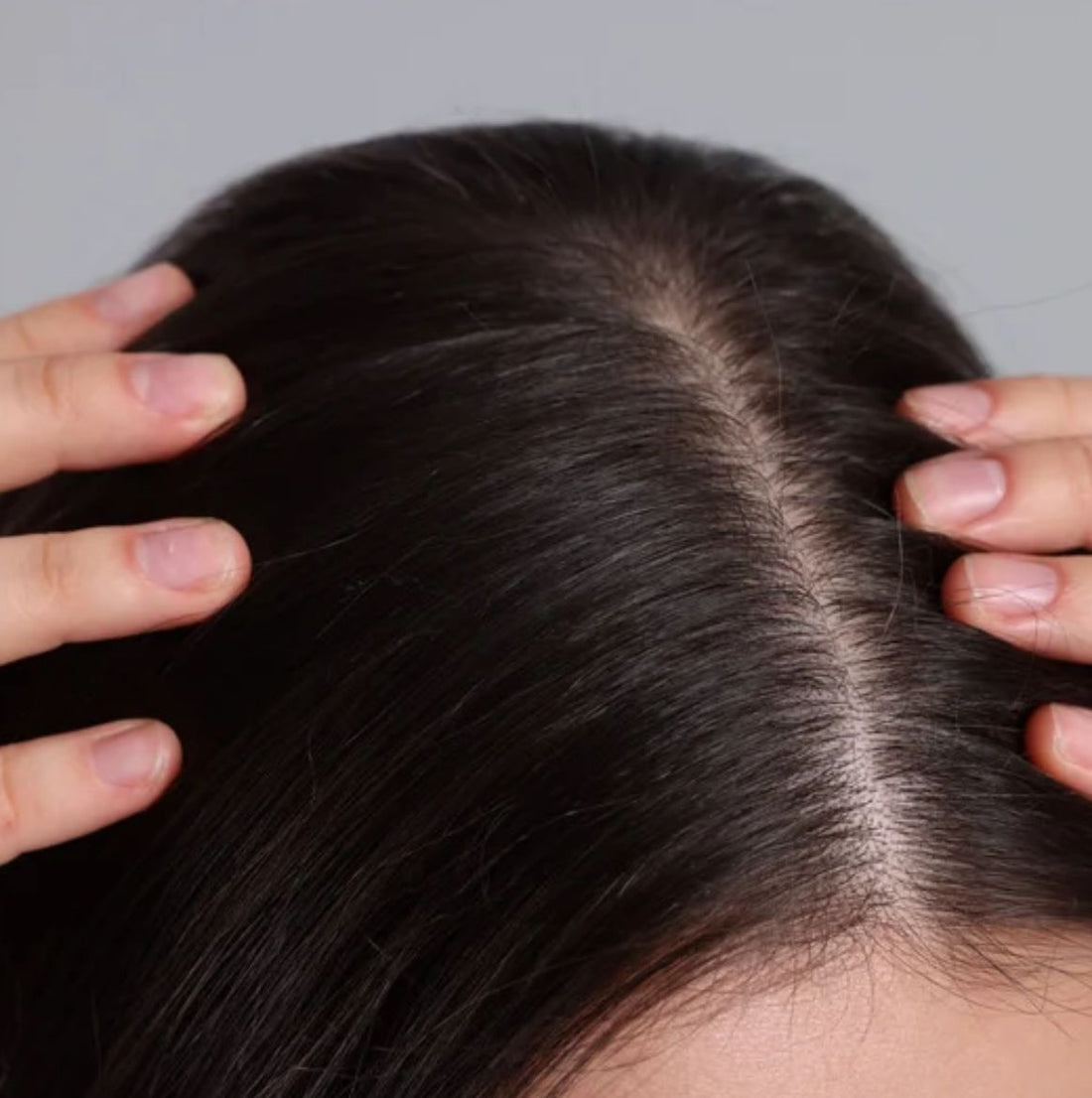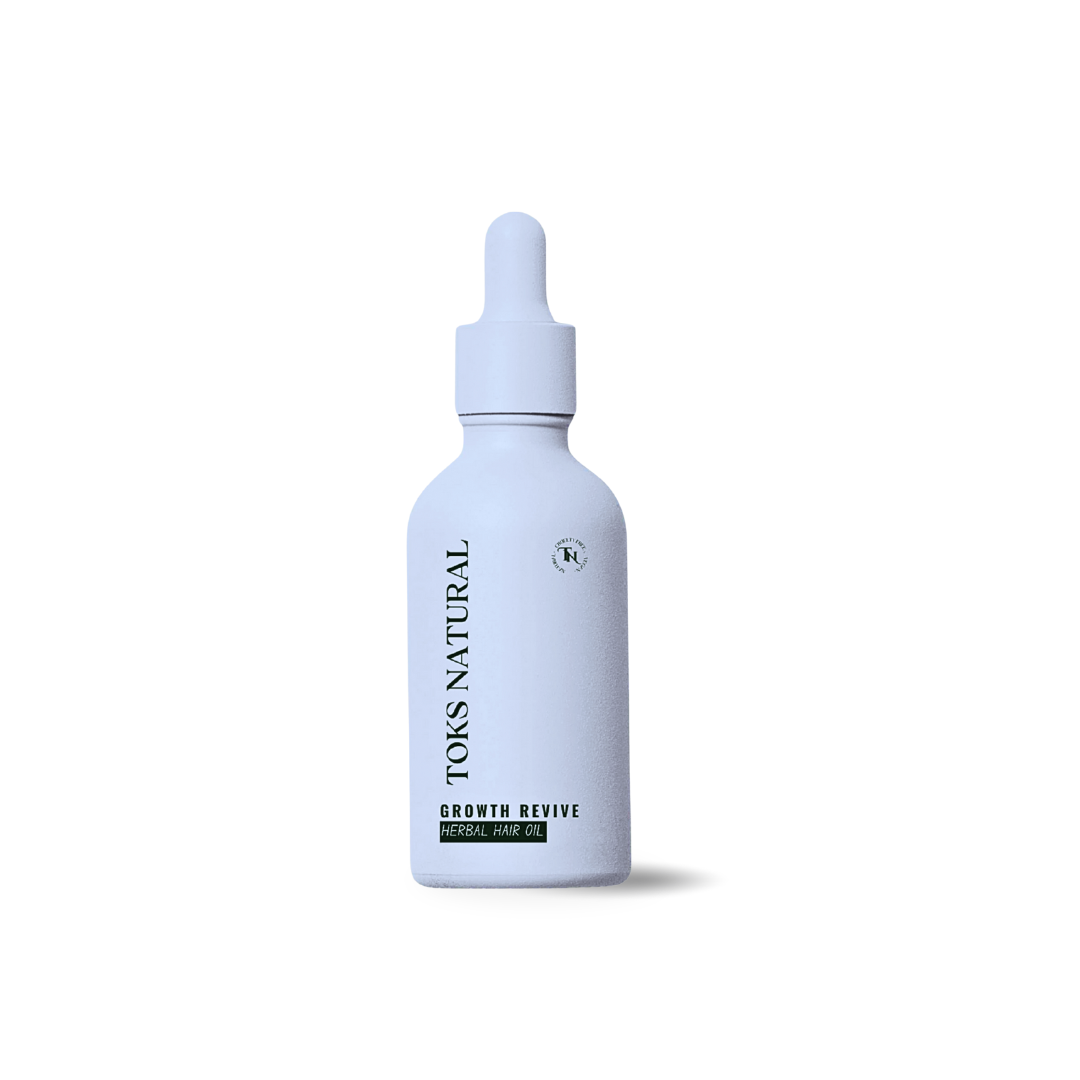
The Ultimate Guide to Scalp Care: Tips for a Healthy Scalp and Strong Hair
Share
A Healthy Scalp: The Foundation of Strong, Vibrant Hair
A healthy scalp is the foundation for strong, vibrant hair. Often overlooked in hair care routines, scalp health is crucial for preventing issues like dandruff, hair loss, and dull hair. This guide explores the importance of scalp health, offers tips for maintaining a clean and balanced scalp, and recommends natural exfoliants and oils to keep your scalp in optimal condition.
The Importance of Scalp Health
The scalp is the skin on your head from which your hair grows. It contains numerous hair follicles, sebaceous glands, and a complex network of blood vessels. A healthy scalp:
- Supports Hair Growth: A clean and well-nourished scalp provides a suitable environment for hair follicles, promoting healthy hair growth.
- Prevents Hair Loss: Conditions like dandruff, excess oil, or scalp infections can weaken hair follicles and lead to hair loss.
- Reduces Dandruff: Maintaining a balanced scalp can prevent the overgrowth of yeast and fungi, which cause dandruff. Learn more about dandruff and its causes in this Mayo Clinic article.
- Enhances Hair Appearance: A healthy scalp leads to shinier, stronger, and more manageable hair.
Tips for Maintaining a Clean and Balanced Scalp
1. Regular Cleansing
- Frequency: Wash your scalp regularly to remove dirt, excess oil, and product buildup. Aim for 2-3 times a week, depending on your hair type and lifestyle.
- Products: Use a gentle, sulfate-free shampoo that suits your scalp type. Avoid harsh chemicals that can strip the scalp of its natural oils. Find a selection of sulfate-free shampoos on Healthline.
2. Exfoliation
- Importance: Exfoliating the scalp helps remove dead skin cells, unclog hair follicles, and promote blood circulation.
-
How to Exfoliate:
- Use a natural exfoliant like sugar or sea salt mixed with a carrier oil.
- Gently massage the mixture into your scalp using circular motions.
- Rinse thoroughly and follow with a gentle shampoo.
3. Moisturization
- Why: Just like the skin on your face, your scalp needs moisture to stay healthy and balanced.
- Natural Oils: Use oils such as coconut oil, argan oil, or jojoba oil to moisturize your scalp. These oils mimic the scalp’s natural sebum and provide hydration without clogging pores.
4. Scalp Massage
- Benefits: Regular scalp massages increase blood circulation, helping to deliver essential nutrients to hair follicles and promoting hair growth.
-
How to Massage:
- Use your fingertips to gently massage your scalp in circular motions.
- Do this for 5-10 minutes daily, either with or without oil.
5. Balanced Diet
- Impact: A diet rich in vitamins and minerals supports scalp and hair health. Focus on foods high in omega-3 fatty acids, vitamins A, C, and E, and zinc.
- Foods to Include: Fish, nuts, seeds, leafy greens, and fruits. You can read more about a hair-healthy diet on WebMD.
6. Hydration
- Importance: Drinking enough water keeps your scalp hydrated from the inside out, preventing dryness and flakiness.
- Tip: Aim for at least 8 glasses of water a day. Hydration is crucial for maintaining skin elasticity and overall scalp health. Check out this Healthline article on the benefits of staying hydrated.
7. Avoid Over-Styling
- Risks: Heat styling, chemical treatments, and tight hairstyles can damage the scalp and hair follicles.
- Advice: Limit the use of heat tools and chemical treatments. Opt for loose hairstyles and natural drying methods whenever possible.
Recommended Natural Exfoliants and Oils
Exfoliants
1. Sugar and Coconut Oil Scrub
- Recipe: Mix 2 tablespoons of sugar with 2 tablespoons of coconut oil.
- How to Use: Gently massage into the scalp, then rinse and shampoo.
2. Sea Salt and Olive Oil Scrub
- Recipe: Combine 2 tablespoons of sea salt with 2 tablespoons of olive oil.
- How to Use: Apply to the scalp, massage, and rinse thoroughly.
3. Oatmeal and Yogurt Scrub
- Recipe: Blend 2 tablespoons of finely ground oatmeal with 2 tablespoons of yogurt.
- How to Use: Massage into the scalp and leave for 15 minutes before rinsing.
Oils
1. Coconut Oil
- Benefits: Moisturises and nourishes the scalp. Coconut oil has been shown to penetrate the hair shaft and reduce protein loss, leading to stronger hair. More details can be found in this study on the benefits of coconut oil for hair.
- How to Use: Apply warm coconut oil to the scalp, leave overnight, and wash off in the morning.
2. Argan Oil
- Benefits: Rich in antioxidants and fatty acids, argan oil nourishes the scalp and hair. It helps prevent dryness and split ends.
- How to Use: Massage a few drops into the scalp and hair, leave for 30 minutes, and shampoo out.
3. Jojoba Oil
- Benefits: Mimics the scalp’s natural sebum, making it an excellent moisturizer that doesn’t clog pores.
- How to Use: Use as a leave-in treatment or mix with shampoo.
4. Tea Tree Oil
- Benefits: Tea tree oil has antifungal and antibacterial properties, making it effective against dandruff. It helps maintain a healthy scalp by reducing microbial buildup.
- How to Use: Mix a few drops with a carrier oil and massage into the scalp to combat dandruff. Learn more about the benefits of tea tree oil on Healthline.
Conclusion
Maintaining a healthy scalp is essential for strong, beautiful hair. By incorporating regular cleansing, exfoliation, and moisturisation into your routine, along with a balanced diet and proper hydration, you can achieve and maintain a clean and balanced scalp. Using natural exfoliants and oils ensures that your scalp stays nourished and free from harmful chemicals.
Take the first step towards healthier hair today by incorporating these scalp care tips into your routine. Try out the natural exfoliants and oils recommended in this guide, and share your results with us in the comments below. For more personalised advice and premium scalp care products, visit our website or subscribe to our newsletter for exclusive tips and offers!



